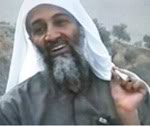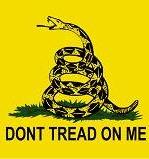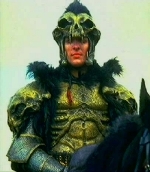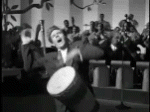McCain
Moderator: Dictators in Training
38 posts • Page 1 of 2 • 1, 2
You told me homie . Now seriously everytime he goes to get involved the republicans chop him down. WHY DONT YOU GO PLAY WITH YOUR TINY DICK HUR HUR
WHITE TRASH METAL SLUMMER
Why Immortal technique?
Perhaps its because I am afraid and he gives me courage.
Why Immortal technique?
Perhaps its because I am afraid and he gives me courage.
-

Spazz - Osama bin Spazz

- Posts: 4752
- Joined: Tue Mar 16, 2004 7:29 pm
- Location: Whitebread burbs
No. The only reason he flopped during his last run is that he chose the wrong platform to run on. The average voter doesn't give a shit about campaign finance reform. Had he chosen a platform such as education, taxes, jobs, and or other things that have a direct impact on the lives of the average voter - things would have been different.
He'll not make the same mistake twice. If he runs - he'll get my vote for sure.
He'll not make the same mistake twice. If he runs - he'll get my vote for sure.
-

Diekan - NT Deity

- Posts: 5736
- Joined: Fri Mar 12, 2004 10:14 am
I won't vote for him, but I refuse to vote for the "lesser of two evils" anymore. I don't care if I'm throwing my vote away or not, I'm only voting for a candidate I can live with, and that's most likely going to be a Libertarian or Green.
Molon Labe
-

Minrott - NT Deity

- Posts: 4480
- Joined: Wed Mar 10, 2004 12:54 pm
- Location: Wisconsin, USA
It really depends who is up. If there's a Democrat I can stomach, I'll prob vote third party. If its Hillary or Kerry, I'll vote for the GOP Candidate, who will most likely be Mitt Romney.
What saves a man is to take a step. Then another step.
– C. S. Lewis
– C. S. Lewis
-

Lyion - Admin Abuse Squad

- Posts: 14376
- Joined: Wed Mar 10, 2004 1:42 pm
- Location: Ohio
I actually really like McCain - he seems to be a very genuine, thoughtful, objective, and pretty detached from mindless partisan-ness - which is a rarity in politics.
While not in complete ideological agreement with him, I think he's a very high caliber person and one of the few people I think I'd actually feel comfortable having as president - so it wouldn't be an issue of choosing the lesser of two evils for me.
He seems to be (I could be wrong) a conservative more concerned with cleaning up the current mess and blocking rotten laws from being passed, rather than starting new government expanding projects - which would lead to a lot of libertarian leaning decisions.
If he runs, I'd definitely do some research and really consider voting for him.
While not in complete ideological agreement with him, I think he's a very high caliber person and one of the few people I think I'd actually feel comfortable having as president - so it wouldn't be an issue of choosing the lesser of two evils for me.
He seems to be (I could be wrong) a conservative more concerned with cleaning up the current mess and blocking rotten laws from being passed, rather than starting new government expanding projects - which would lead to a lot of libertarian leaning decisions.
If he runs, I'd definitely do some research and really consider voting for him.
-Yamori
AKA ~~Baron Boshie of the Nameless~~
AKA ~~Baron Boshie of the Nameless~~
-

Yamori - NT Traveller

- Posts: 2002
- Joined: Wed Mar 24, 2004 5:02 pm
I used to vote like that Lyion, until I realised politicians are really like puppies. The only way to get them to do what you want them to do is to treat them as such. I can't reward politicians who go back on their word, or who have alternate agendas that may perhaps be more palatable than their opposers, with my vote. I much rather Bush in office than either Gore or Kerry. But I also knew that he wouldn't support many things I think need to be supported by the executive office, and therefore voted for Badnarik this last time around.
I realise that one terrible schmuck like Kerry can't ruin the country in one term, and that gives me the freedom to vote for who lines up with me the best, rather than voting to keep someone else from winning.
I realise that one terrible schmuck like Kerry can't ruin the country in one term, and that gives me the freedom to vote for who lines up with me the best, rather than voting to keep someone else from winning.
Molon Labe
-

Minrott - NT Deity

- Posts: 4480
- Joined: Wed Mar 10, 2004 12:54 pm
- Location: Wisconsin, USA
Kerry is a shmucktard.
You would actually vote for a Jane Fonda fag like that?
As for McCain, he is like the opposite of Hillary. As election time draws near, she moves from left to center ad this old bastard does the same thing from his end. He may never recover from the asswhipping Bush gave him in the 2000 primaries after he got his hopes up so high hence his constant hostility towards him.
Jesse Ventura wouldn't be too bad. I like the Predator angle, with Schwarzenegger and Ventura. He could make Carl Weathers the Secretary of State, Sonny Landham as Sec of Defense, and Bill Duke Attorney General.
Guliani ftw.
You would actually vote for a Jane Fonda fag like that?
As for McCain, he is like the opposite of Hillary. As election time draws near, she moves from left to center ad this old bastard does the same thing from his end. He may never recover from the asswhipping Bush gave him in the 2000 primaries after he got his hopes up so high hence his constant hostility towards him.
Jesse Ventura wouldn't be too bad. I like the Predator angle, with Schwarzenegger and Ventura. He could make Carl Weathers the Secretary of State, Sonny Landham as Sec of Defense, and Bill Duke Attorney General.
Guliani ftw.
Lyion wrote:If Hillary wins Texas and Ohio, she'll win the nomination.
Tossica wrote:Seriously, there is NO WAY Sony is going to put HD-DVD out of the game.
-

Ouchyfish - NT Patron

- Posts: 4744
- Joined: Wed Mar 10, 2004 1:57 am
Minrott wrote:I realise that one terrible schmuck like Kerry can't ruin the country in one term, and that gives me the freedom to vote for who lines up with me the best, rather than voting to keep someone else from winning.
Yeah, but anyone who openly pans for the moonbats at Daily Kos is a person I'm going to fight against.
I'd love to see a valid third party in my lifetime, but I'm not sure we'll get it. Ross had the right idea, but it's a shame he was just a megalomaniacal little dude without the true desire for a third party.
What saves a man is to take a step. Then another step.
– C. S. Lewis
– C. S. Lewis
-

Lyion - Admin Abuse Squad

- Posts: 14376
- Joined: Wed Mar 10, 2004 1:42 pm
- Location: Ohio
You think the Republicans would seriously consider nominating a pro-gay rights, pro-choice guy who moved his mistress into his house before his divorce was even final?
haha i guess there is a difference ina northeastern republican and a southern republican....
if the noreaster' makes you rich he is FTW...
the southerner has also got to convince you he is a good enough protestant to sell bobble heads to the church-goers...
Mindia is seriously the greatest troll that has ever lived.
-
.gif)
Kramer - NT Traveller

- Posts: 3397
- Joined: Wed Mar 17, 2004 10:50 pm
- Location: tha doity sowf
Minrott wrote:Yes because everyone who votes red is racist or sexist.
Inside each person lives two wolves. One is loyal, kind, respectful, humble and open to the mystery of life. The other is greedy, jealous, hateful, afraid and blind to the wonders of life. They are in battle for your spirit. The one who wins is the one you feed.
-

Martrae - Admin Abuse Squad

- Posts: 11962
- Joined: Mon Mar 15, 2004 9:46 am
- Location: Georgia
I like McCain as well but he's so moderate I don't think he'll get a nomination even though I'm sure he could win. I don't agreee at all they he's the opposite of Clinton. But I'm pretty sure Hilary hasn't a snowballs chance, way too much baggage.
Frist v Biden, or something simular is prolly what it'll come down to. Gore and Kerry are old news, Kerry could prolly run on his own money, Gore is done. Frankly if the Dems don't get themselves a strong platform based on more than finger pointing out the missteps of the current administration, they won't see power for a very long time. I don't think the Republicans will lose this year either. Maybe a seat here or there but nothing significant.
I'd vote for McCain against anyone else I see now though. He's a good man.
Frist v Biden, or something simular is prolly what it'll come down to. Gore and Kerry are old news, Kerry could prolly run on his own money, Gore is done. Frankly if the Dems don't get themselves a strong platform based on more than finger pointing out the missteps of the current administration, they won't see power for a very long time. I don't think the Republicans will lose this year either. Maybe a seat here or there but nothing significant.
I'd vote for McCain against anyone else I see now though. He's a good man.
God made man! But a monkey supplied the glue...
- Sorina S
- NT Disciple

- Posts: 529
- Joined: Tue Mar 23, 2004 11:36 am
- Location: Right behind you!
Sorina S wrote:I like McCain as well but he's so moderate I don't think he'll get a nomination even though I'm sure he could win. I don't agreee at all they he's the opposite of Clinton. But I'm pretty sure Hilary hasn't a snowballs chance, way too much baggage.
Frist v Biden, or something simular is prolly what it'll come down to. Gore and Kerry are old news, Kerry could prolly run on his own money, Gore is done. Frankly if the Dems don't get themselves a strong platform based on more than finger pointing out the missteps of the current administration, they won't see power for a very long time. I don't think the Republicans will lose this year either. Maybe a seat here or there but nothing significant.
I'd vote for McCain against anyone else I see now though. He's a good man.
Kerry is done. He and his wife basically did him in. He can't undo his "approval from the UN" shit or the damage he did to himself a la swiftboat bullshit.
Hillary, on the other hand, is going to win that god damned election if the Reps can't pull a rabbit out of a hat. And by rabbit, I am not referring to that fuckin buck toothed mouth full of shit goody-two-shoes McCain. As a patriot, he did a fine job and endured hardships I couldn't even begin to imagine, but as a politican he sucks the cock.
Guliani may be their only hope. He's a household name. He gets shit done. I think he can do it.
Got this from somewhere: (long read so if you're not interested, don't read it and save your bitching for another day)
Within days of his inauguration, it became clear that the Giuliani’s approach to crime was going to be radically different from the previous mayor’s. On January 8th, the police received a 911 call reporting a robbery at Louis Farrakhan’s mosque in Harlem, Muhammad Mosque No. 7. Two police officers rushed to the scene, unaware that the call was a hoax. When they entered the mosque, they found their path barricaded by Muslim security men angered that cops were entering a house of worship. A fight broke out between the mosque members and the police, each side calling for reinforcements and each side suffering injuries. In the struggle, a police gun and radio were left in the mosque. Finally, a standoff ensued and the two sides began negotiating a truce.
According to the new Police Commissioner, William Bratton, who had just arrived in New York but had not yet been sworn in, the negotiations were frequently interrupted by telephone calls from the new mayor. Ignoring the racial tension in the city following the defeat of the city’s first black mayor, Giuliani demanded action: “You have police injured. You have stolen police property. Why aren’t you going in?”4 He yelled at Bratton, “I want arrests.” He seemed, Bratton later told Giuliani biographer Wayne Barrett, to be trying to show “how he was going to be different from Dinkins.”5 The officers chose to follow their commanding officer’s orders and resolved the incident without further violence. The precedent, however, had been set: Giuliani was tough on crime and expected results immediately.
The incident at the mosque was only the first of many crises into which the mayor intervened. During severe snowstorms (17 in one year), he could be spotted driving through the city in his signature Chevrolet Blazer SUV. When a subway fire broke out, the mayor raced to the scene to support the emergency staff and reassure the injured. If a police officer was injured, he or she could count on a visit from the mayor. Rarely was there an emergency in the city without the mayor being there.
Giuliani not only responded to emergency situations, he anticipated and planned for them. “I assumed from the time I came into office that New York City would be the subject of a terrorist attack,” he said.6 The 1993 bombing of the World Trade Center was, he believed, a harbinger of worse to come. He established the Office of Emergency Management to ease turf battles between agencies and improve preparedness. Consistent with his modus operandi in actual crises, the mayor was an active participant in the drills played out by the office. “With our mayor, you forgot it was a drill,” recalled Richard Sheirer who became the Director of the Emergency Command Center in 2000. (See Exhibit 2 for background on Office of Emergency Management and Director Richard Sheirer.)
Giuliani even reached beyond New York City boundaries to respond to crises that deeply affected its citizens. In July 1996, when TWA flight 800 crashed into the Long Island Sound, hundreds of anxious friends and relatives of the victims arrived at the airport searching for their loved ones. The mayor, who had a friend on the flight, followed the crowd to a nearby Ramada Inn to wait for information from the airline. TWA sent grief counselors to meet with the assembly of concerned family and friends, but still could not confirm who exactly had been on the flight. As time passed and no official information was forthcoming, the gathered crowd became increasingly distressed and the mayor increasingly angry. Demanding at least a preliminary list of victims, Giuliani took it upon himself to personally break the news to the families, one at a time, that their loved one was believed to be on the flight. He stayed with the families through the night. The next morning, when TWA had still not produced a final list, the mayor decided to make a point. Appearing on four morning talk shows, Giuliani criticized the airline’s failure to take care of the victims’ families. A few days later, empathizing with the pain that he knew the families were experiencing, Giuliani spoke movingly at a memorial service in St. Patrick’s Cathedral.
The mayor’s capacity for kindness and compassion was widely recognized among his friends and colleagues. Giuliani was known to take time out to visit sick children in the hospital and to attend funerals of friends’ relatives. In one instance, he stayed with the mother of a staff person until 4am after her husband died. In public, however, polls in 1995 indicated that while 60% of the city felt the mayor was doing a good job, more than 50% found him dislikable.
By the end of his first term, Giuliani’s accomplishments were impressive. He had chased the mob out of the Fulton fish market, and the commercial garbage hauling industry, and the Feast of San Gennaro. New York institutions, such as the Metropolitan Museum of Art, and other business reported reductions of as much as 40% in their garbage bills. The economy was improving, budget deficits were declining, and unemployment rolls were shrinking. The reduction in crime was the most spectacular. The murder rate in New York City had fallen by 40%. Car theft decreased by 35%. To a certain extent, Giuliani had been lucky. His first term coincided with a national economic boost and crime slump in major American cities. But, as Giuliani was always quick to point out, New York had led the statistics and contributed significantly to national crime rate averages.
The success of Giuliani’s zero tolerance crime policy was not achieved without negative side effects. Concern about police misconduct was mounting among minorities and liberal city residents of all races. Suspicions that the New York Police Department was out of control appeared to be confirmed when the police abuse case of Abner Louima broke in August 1997.
Lyion wrote:If Hillary wins Texas and Ohio, she'll win the nomination.
Tossica wrote:Seriously, there is NO WAY Sony is going to put HD-DVD out of the game.
-

Ouchyfish - NT Patron

- Posts: 4744
- Joined: Wed Mar 10, 2004 1:57 am
38 posts • Page 1 of 2 • 1, 2
Who is online
Users browsing this forum: No registered users and 12 guests



